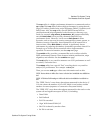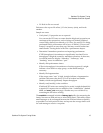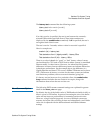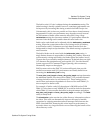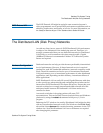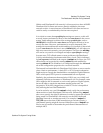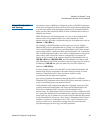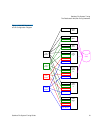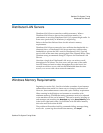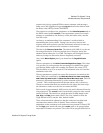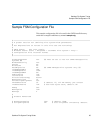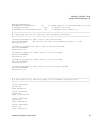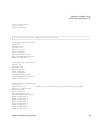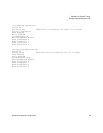
StorNext File System Tuning
Distributed LAN Servers
StorNext File System Tuning Guide 22
Distributed LAN Servers
Distributed LAN Servers must have sufficient memory. When a
Distributed LAN Server does not have sufficient memory, its
performance in servicing Distributed LAN I/O requests might suffer. In
some cases (particularly on Windows,) it might hang.
Refer to the StorNext Release Notes for this release’s memory
requirements.
Distributed LAN Servers must also have sufficient bus bandwidth. As
discussed above, a Distributed LAN Server must have sufficient bus
bandwidth to operate the NICs used for Distributed LAN I/O at full
speed, while at the same time operating their Fibre Channel HBAs. Thus,
Quantum strong recommends using PCI Express for Distributed LAN
Servers.
Note that a single slow Distributed LAN server can reduce overall
throughput for all clients. The slow server will get some of the traffic
from all clients and tend to reduce throughput across the board. An
example would be a server with less disk bandwidth than the other
servers, or a server with a slow network connection.
Windows Memory Requirements
Beginning in version 2.6.1, StorNext includes a number of performance
enhancements that enable it to better react to changing customer load.
However, these enhancements come with a price: memory requirement.
When running in the Windows environment on a machine with
minimum memory (256 MB) the tuning parameters need to be adjusted
or the machine will run out of memory. This can be seen by bringing up
task manager and watching the
Nonpaged tag in the Kernel Memory pane
in the lower right hand corner. On a machine with 256 MB of memory
this value must be less than 96 MB.
The problem will manifest itself by commands failing, messages being
sent to the system log about insufficient memory, the
fsmpm



